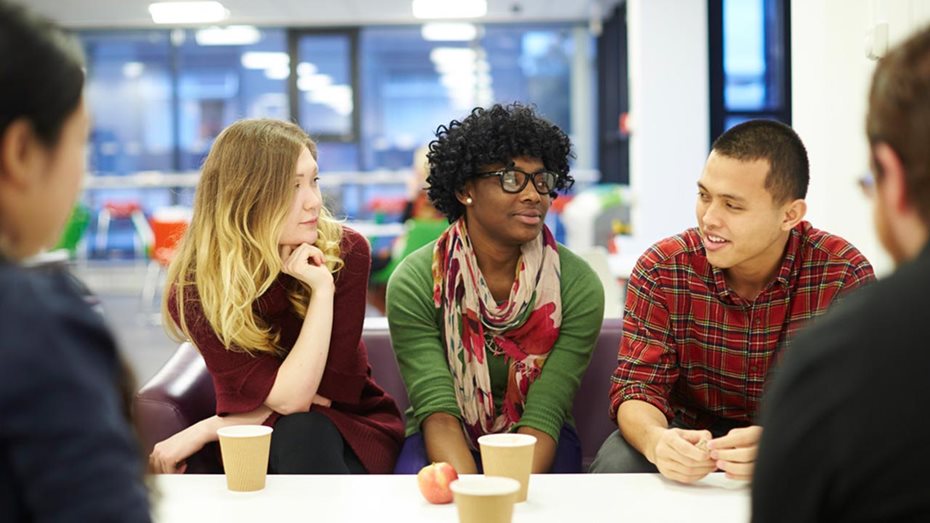Start dates: September 2025 / January 2026 / September 2026
Full time: 1 year or 2 years in sandwich mode which includes one year's full-time paid supervised work experience (a work placement).
Part time: 24 months for UK students (teaching normally provided on one day or two half days each week during semesters.)
Location: Headington
School(s): Oxford Brookes Business School
Overview
Famous festivals. Mega sporting competitions. Global meetings and congresses. On our Global Events Management MSc, you’ll unlock opportunities to take the lead organising large-scale events like these around the world. It doesn’t matter if you haven’t got experience in this area – we’ll give you the know-how you need.
Responsibility, sustainability, and inclusion are at the heart of this course. You’ll also benefit from a global programme of guest speakers. Hear from experts from all corners of the globe and learn about current issues for the industry such as event accessibility, and sustainability.
Take your learning beyond the lecture theatre with our practice focused electives. You can deliver a real-life event – with our Planning and Delivering the Sustainable Event module. Pick the Dark Tourism module and you’ll design a new experience for an attraction in this area. All these experiences will boost your employability and prepare you for success.
Ranked 3rd in the UK & 24th in the world – Hospitality and Leisure Management Programmes, QS World University Rankings 2023

Why Oxford Brookes University?
-
Unique approach
We’re the only course in the UK which offers a holistic overview of global events.
-
Exciting electives
Oxford, with its rich cultural heritage and reputation as an innovation hub is the perfect backdrop for immersive field-based electives such Dark Tourism and Planning and Delivering the Sustainable Event.
-
Unrivalled support
The Bacchus Mentoring and Leadership programme focuses on boosting your employability by providing you with access to senior leaders from your industry, who can help you chart your career path.
-
Industry placement
We’ll help you find a paid placement with organisations such as Richmond Creative Events and Entertainment Technology Partners so you can apply your skills and boost your employability.
-
Global guest speakers
Hear from experts in global events from across the world, from Singapore to Sydney.
Course details
Start this course in January or September
You can start this course in January if a September start doesn't suit you or is not currently offered for this course.
If you start in January you will study a range of modules between January and May. During the summer months of June, July and August you will study further modules and begin work on your dissertation. Between September and December you will complete your final modules and focus on your dissertation.
Study modules
Be industry ready when you graduate
By undertaking an optional work placement you can gain valuable and relevant industry experience and develop transferable skills such as communication, teamwork, networking and problem solving. A work placement can help you decide on your long-term career objectives and may lead to a job offer after graduation (would require visa sponsorship for international students).
The WAVES (Work and Voluntary Experience Service) or Careers Office will provide you with support and advice to get ahead in your career, and help you with your CV and applications. The team has access to a wide range of small, medium and large employers that offer postgraduate student work placements.
If you wish to pursue a placement at a particular company, our WAVES team can support you in making an approach to the company. Our Careers Office can also provide you with advice on how to use professional social media channels to pitch yourself to prospective employers.
Please note: As our courses are reviewed regularly as part of our quality assurance framework, the modules you can choose from may vary from those shown here. The structure of the course may also mean some modules are not available to you.
Research
Our research staff publish in prestigious top tier internationally rated journals including Annals of Tourism Research, Tourism Management, International Journal of Hospitality Management, Event Management, The Service Industries Journal, European Journal of Marketing, Journal of Services Marketing, International Small Business Journal and Journal of Small Business Management.
Careers
A future in global events management is full of opportunities, challenges, and amazing experiences. You’ll understand the issues facing the industry and be ready to work anywhere in the world.
Armed with a degree in this area, you’ll be ready for roles in:
- global meetings,
- conferences and exhibitions,
- mega sporting events,
- live music tours,
- major music festivals,
- carnivals and parades,
- sales events hosted by global brands.
Former graduates who have qualified in events management are currently working as:
- conference and banqueting coordinators for hotels,
- marketing and events specialists for the National Health Service (NHS),
- museum event managers,
- freelancers and entrepreneurs running their own event businesses.
After you graduate, you might decide to continue your research with a PhD. A PhD helps you become a subject matter expert, become a consultant, or teach the next generation of global event leaders.
Our Staff
Dr Hugues Séraphin
Read more about HuguesDr Rosa Codina
Read more about RosaRelated courses
Entry requirements
Specific entry requirements
A minimum of a second class honours degree (2:2) in any academic discipline, or equivalent overseas degree from a recognised institution.
Applicants who possess a diploma rather than a good degree may be eligible for entry provided they have compensatory work experience and can demonstrate career development.
Entry will also be subject to one satisfactory reference (academic).
If English is not their first language students will need to satisfy the university's English language requirements: IELTS minimum level 6.0 (with a minimum of 6.0 in reading and writing, and 5.5 in listening and speaking) or equivalent. Students who have completed their undergraduate degree in the UK (at least one full year of study) will automatically meet the university’s English language requirements.
Please also see the University's general entry requirements.
English language requirements
Please see the University's standard English language requirements.
Pathways courses for international and EU students
We offer a range of courses to help you meet the entry requirements for your postgraduate course and also familiarise you with university life in the UK.
Take a Pre-Master's course to develop your subject knowledge, study skills and academic language level in preparation for your master's course.
If you need to improve your English language, we offer pre-sessional English language courses to help you meet the English language requirements of your chosen master’s course.
English requirements for visas
If you need a student visa to enter the UK you will need to meet the UK Visas and Immigration minimum language requirements as well as the University's requirements. Find out more about English language requirements.
Terms and Conditions of Enrolment
When you accept our offer, you agree to the Terms and Conditions of Enrolment. You should therefore read those conditions before accepting the offer.
International qualifications and equivalences
Tuition fees
Questions about fees?
Contact Student Finance on:
Tuition fees
Fees quoted are for the first year only. If you are studying a course that lasts longer than one year, your fees will increase each year.
The following factors will be taken into account by the University when it is setting the annual fees: inflationary measures such as the retail price indices, projected increases in University costs, changes in the level of funding received from Government sources, admissions statistics and access considerations including the availability of student support.
How and when to pay
Tuition fee instalments for the semester are due by the Monday of week 1 of each semester. Students are not liable for full fees for that semester if they leave before week 4. If the leaving date is after week 4, full fees for the semester are payable.
- For information on payment methods please see our Make a Payment page.
- For information about refunds please visit our Refund policy page
Additional costs
Please be aware that some courses will involve some additional costs that are not covered by your fees. Specific additional costs for this course are detailed below.
Optional costs
| Additional costs | Amount (£) |
|---|---|
International Business in Practice Study Trip module (inc. accommodation for seven nights, insurance, company visits and group transportation for all activities). This fee did not include international airfare, visa application fee (if relevant), dinners and activities during your free time. |
£350-1500 |
International Business in Practice Study Trip module (inc. accommodation for seven nights, insurance, company visits and group transportation for all activities). This fee did not include international airfare, visa application fee (if relevant), dinners and activities during your free time. |
£350-1500 |
It’s your responsibility to cover print / binding costs where coursework submission is required. Please note that a lot of the coursework is now submitted online. |
From £30 |
| You may choose to purchase books to support your studies. Many books on our reading lists are available via the Library, or can be purchased secondhand. | £20-60 per book |
Accommodation fees in Brookes Letting (most do not include bills) |
£94-265 per week |
Accommodation fees in university halls (bills included, excluding laundry costs) |
£122-180 per week |
Graduation costs include tickets, gowning and photography. Gowns are not compulsory but typically students do hire robes, starting at £41. |
Typically £0-200 |
Students are responsible for their own travel to and from university for classes. BrookesBus travel is subsidised for full-time undergraduate students that are on a course with a fee of £9,250 or more, or living in an Oxford Brookes hall of residence. There is an administration fee for the production of a BrookesKey. |
From £10 |
Funding your studies
Financial support and scholarships
Featured funding opportunities available for this course.
All financial support and scholarships
Programme changes:
On rare occasions we may need to make changes to our course programmes after they have been
published on the website. For more information, please visit our
changes to programmes page.

